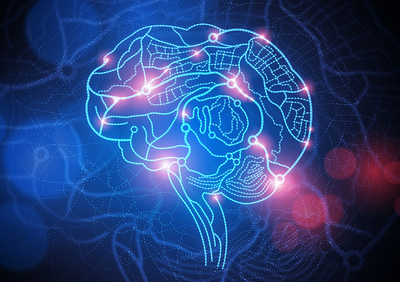The benefits of mindfulness meditation are becoming increasingly well known. Proposes the UCLA Center for East-West Medicine: “Now used in multiple clinical interventions and cognitive therapy programs, mindfulness meditation may be able to reduce stress and depression, treat binge eating and other eating disorders, and contribute to greater cell longevity. Whether practiced daily or intermittently, mindfulness meditation can be an effective path toward enhanced well-being.”
One particularly fruitful application of mindfulness meditation is in the area of substance abuse treatment. Here’s a closer look at four ways meditation can help promote recovery and wellness.

Meditation can help create new pathways in the brain.
1. It helps rewire the brain.
Addiction changes the brain, leading to intense cravings, loss of control, and ongoing adverse consequences; however, while the brain’s capacity to rewire itself can lead to addiction, it can also facilitate recovery—particularly when mindfulness meditation is practiced.
Explains Psychology Today: “Research on mindfulness meditation indicates that qualities we once thought immutable that form temperament and character can actually be altered significantly. By retraining your mind through mindfulness practice, you create new neural networks. If you’re aggressive, you can find ways to temper that aspect of yourself, becoming assertive and clear about your boundaries without entering into a competitive and possibly even hostile mindset that will sabotage you.”
In other words, mindfulness meditation can help rewire the brain in a way that supports a mindset that’s more open to accepting recovery.
2. It lowers stress levels.
Stress can lead to alcohol and drug abuse. It is also associated with relapse. Addicts who learn to manage their stress have better chances of lasting recovery. Enter meditation.
“Meditation can give you a sense of calm, peace, and balance that can benefit both your emotional well-being and your overall health….And these benefits don’t end when your meditation session ends. Meditation can help carry you more calmly through your day and may help you manage symptoms of certain medical conditions,” says the Mayo Clinic.
3. It delivers a “natural high.”
For many addicts, this “natural high” can deliver the sensations they’re looking for without falling back on negative behaviors. Research indicates that drug use leads to increased levels of the naturally occurring “feel-good” neurotransmitter dopamine. When these levels rise, they create the need for more drugs in order to maintain this euphoric feeling. Unfortunately, the more addicts use, the more dopamine they produce, which leads to the development of tolerance and a vicious cycle of always needing more.

One can be mindful anywhere at any time.
What if we told you there was a way to increase dopamine levels in the brain without drugs? Says Be Brain Fit: “Low dopamine levels can lead to lack of motivation, fatigue, addictive behavior, mood swings, and memory loss.” A meditative state can get the dopamine flowing, thereby mitigating the need for “self-medicating” through substance use.
4. It can help minimize impulsive behavior.
Cravings can be overwhelming for addicts, and attempting to control these urges can lead to setbacks. Rather than letting their cravings control them, meditation gives addicts control over their cravings.
Proposes the EOC Institute: “The key to witnessing these impulses instead of being controlled by them, meditation works not by suppression (which makes things worse)—but by allowing the mind to simply step aside from the waterfall of addictive thoughts. The meditative mind neutrally observes the coming and going of urges and cravings in a very unemotional and detached way. When meditation puts you back into the driver seat of your mind, urges downgrade to just another thought, powerless to manipulate you in any way.”
We’re Here to Help
The most successful addiction treatment programs take a holistic approach to recovery by utilizing a comprehensive range of resources and tools, including meditation and mindfulness. To learn more about treatment programs at Harris House, contact us today.







